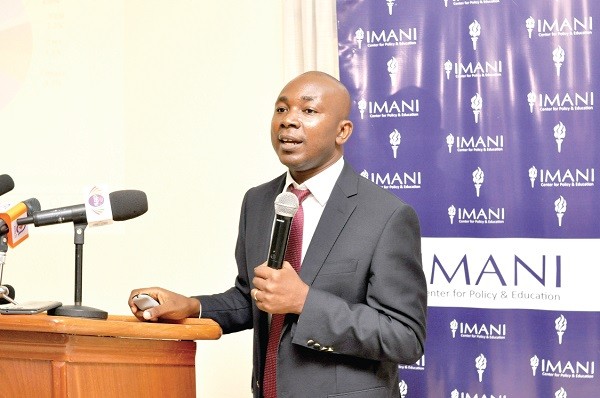Only a government-led intervention will bring down lending rates to levels needed to spur economic growth and transformation, Professor Godfred Bokpin – an economist and professor of finance at the University of Ghana Business School, has said; insisting that not everything must be left for the private sector to determine.
The average lending rate in Ghana today is about 25 percent – despite the central bank slashing its key policy rate by 150 basis points to 14.50 percent in March this year, in addition to a reduction in the primary reserve requirement from 10 to 8 percent and capital conservation buffer from 3 to 1.5 percent.
Ideally, this is expected to be passed on throughout the financial system – with banks reflecting it in transactions among themselves and with the public. However, the degree of policy rate transmission among the commercial banks has been very weak; thereby making lending rates worryingly high in spite of the progress made in driving down the rates.
While other factors such exchange rate, Treasury-bill rate and inflation, among others, also affect the rate at which commercial banks lend to the public, Prof. Bokpin is of the view that government should and must start to direct and push banks into lowering their rates in line with its economic transformation and industrialisation agenda.
“It is not everything that you can leave for the private sector to determine,” he said on the side-lines of the Ghana Economic Forum 2020, which was the theme ‘Resetting the economy beyond COVID-19: building economic resilience and self-sufficiency’.
“It is not always that the forces of demand and supply settles a national agenda, and that is why the state must be conscious about pushing and directing certain activities because of a national goal which we cannot leave for private sector to determine,” he added.
The situation is irritating the investor and business communities, with the Ghana National Chamber of Commerce and Industry and Association of Ghana Industries regularly railing against the high interest rates.
Similarly, President Nana Addo Dankwa Akufo-Addo described the high interest rate regime as a “concern for all” during an address to chief executive officers in Accra last year, when he said: “I have requested the Bank of Ghana (BoG) Governor to interrogate the issue of high interest rates in Ghana, and how the problem can be addressed to enhance competitiveness of the private sector”.
However, in spite of the president’s comments – coupled with the COVID-19 contingency measures announced by the Bank of Ghana earlier this year, the rates have remained largely unresponsive and have not seen much of a significant drop; a situation many economists fear could affect business recovery and competitiveness in the current economic climate and within the context of imminent implementation of the African Continental Free Trade Area (AfCFTA).
Prof. Bokpin believes that government’s intervention has become a necessity, and added that deliberate state control over the interest rate is something done by governments around the world. “You can say that it is not the business of government to do business, but all over the world governments recognise necessary key interventions and they lead. This is important!”










